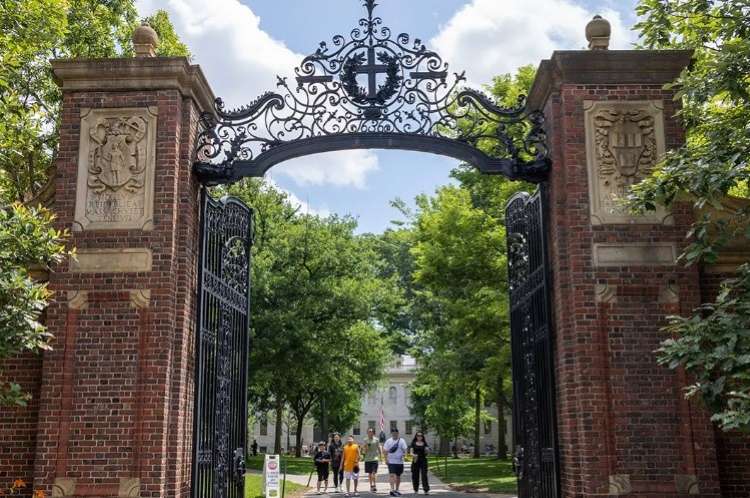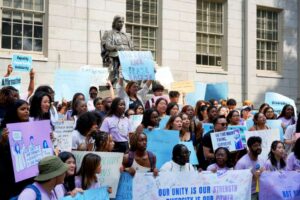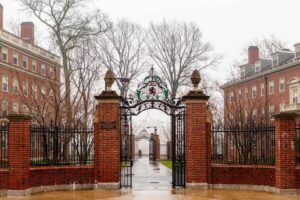
Harvard visa ban will undermine America’s soft power: On May 22 2025, the US department of homeland security yanked Harvard University’s licence to enrol foreign students and ordered 6,800 youngsters from 153 countries to pack their bags. Four days later Harvard sued, a federal judge froze the order, and the White House doubled-down by threatening to choke off $9 billion in federal grants. Some see this as just another skirmish in President Donald Trump’s war on liberal institutions, but it is nothing less than a strategic blunder that will corrode the very foundations of America’s claim to the leadership of the free world.
For a century, the United States has wielded ideas, not imperial garrisons, to spread its influence. Its universities—Harvard foremost among them—have been the beacons that drew ambitious minds, forged lasting networks and incubated democratic values. Last year 1.1 million international students contributed $43.8 billion to the US economy and supported more than 378,000 jobs. They returned home as informal ambassadors of the ‘American idea’. By threatening them with deportation, Washington is dimming that beacon and inviting rival powers to seize the mantle.
READ I US-India bond yield gap narrows to 1.6%
Harvard visa ban will hit innovation pipeline
The Harvard visa ban is not just a matter of tuition cheques; it imperils the research ecosystem that underwrites American technological leadership. Harvard alone pulled in $686 million in federal research money last year, much of it for cancer, infectious-disease and space-biology projects undertaken with partners across the country. Those grants are now hostage. Experimental mice are being euthanised, laboratories mothballed and post-docs courted by Toronto and Singapore. When the United States throttles its own knowledge engine, Beijing and Berlin do not merely cheer—they recruit.

The administration relied on an obscure regulation, yet skipped the notice-and-comment safeguards that courts demanded when a similar attempt to expel overseas students collapsed in 2020. Harvard’s complaint accuses DHS of acting arbitrary and capricious and retaliating against constitutionally protected speech. Seasoned litigators predict an injunction well before the autumn intake. But the damage is already done: allies who lectured the world on due process now watch Washington play fast and loose with its own rules.
Investors rarely traffic in sentiment; they price risk. Since mid-April Harvard’s 4.17% 2035 notes have widened from T+74 bp to T+92 bp—a spread normally reserved for cash-starved regional colleges, not a university with a $53 billion endowment. The tremor has rattled the entire $65 billion private-college sector and clipped Boston-area life-science REITs. Capital, like talent, is mobile; if Washington politicises credit risk, Wall Street will diversify away from it.
Allies, competitors vote with their feet
Canada, Germany, Ireland and Singapore have already launched campaigns to woo the students America now regards with suspicion. Applications to Dutch universities are up, British UCAS reports a spike from India and Nigeria, and Australia smells a windfall. Every student diverted is a laboratory assistant lost, a start-up founder redirected, a future Nobel laureate coached elsewhere. The United States is not just forfeiting tuition; it is surrendering tomorrow’s ideas market.

Administration officials argue that international students steal seats from Americans. That is mathematically unsound. Foreign under-graduates occupy barely 5% of US lecture halls; at elite privates they cross-subsidise domestic aid. If Harvard were forced to replace them overnight, tuition rebates for middle-class Americans would shrink, not rise. The populist narrative cannibalises its own constituency.
From arsenal of democracy to fort of insecurity
During the Second World War Franklin Roosevelt called the United States the Arsenal of Democracy. In the Cold War it became the laboratory of democracy, open to dissidents from Iron Curtain and Bamboo Curtain alike. By closing that laboratory on the grounds that some protesters chanted offensive slogans, Trump converts a few campus skirmishes into a national security threat—and proclaims to the world that America no longer trusts its own institutions to handle dissent. Autocrats will quote him with glee.
Great powers do not rise by intimidating universities; they rise by funding them. Britain endowed Oxford even as it governed an empire. China pours billions into Tsinghua because it knows ideas precede influence. The United States, by contrast, is now instructing Harvard to hand over protest records, hire government-approved auditors and apologise for “woke ideology”. That is not leadership of the free world; it is a parody of the very regimes Washington admonishes.
Harvard’s lawyers will almost certainly win interim relief. Congress could still rein in the executive, and saner Republican governors—who cherish the biotech clusters around Boston—may whisper caution into White House ears. The question is not whether the courts will restore status quo ante; it is whether the rest of the world will forget the message already sent: that America’s commitment to open inquiry can be switched off by presidential fiat.
In the 1990s, the United States transformed from super-power to super-magnet, drawing talent, capital and admiration in equal measure. Today, by attacking Harvard, Washington is sawing off the branch on which that magnetism rests. If the Trump administration persists with Harvard visa ban, the damage will not be confined to Cambridge; it will echo in Silicon Valley labs, NATO briefing rooms and IMF board debates where American ideas once carried unchallenged authority.
